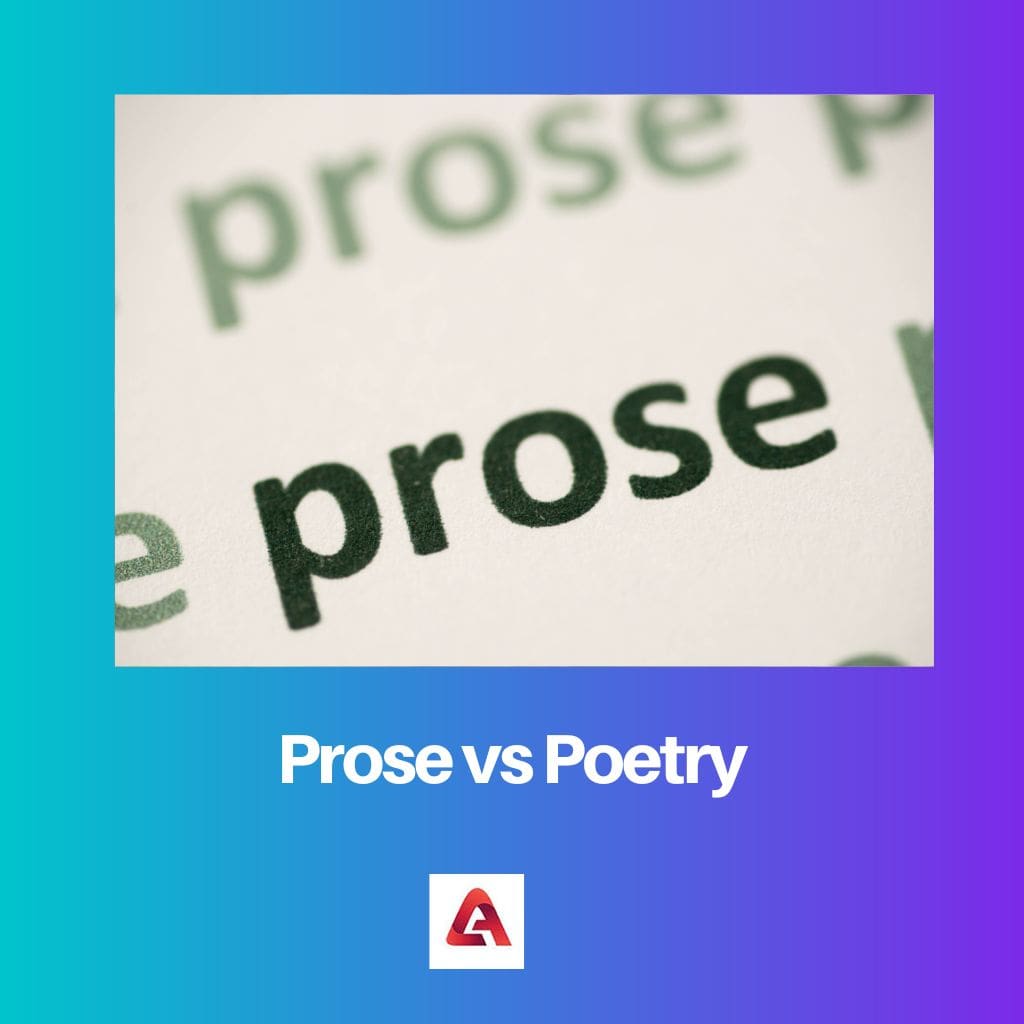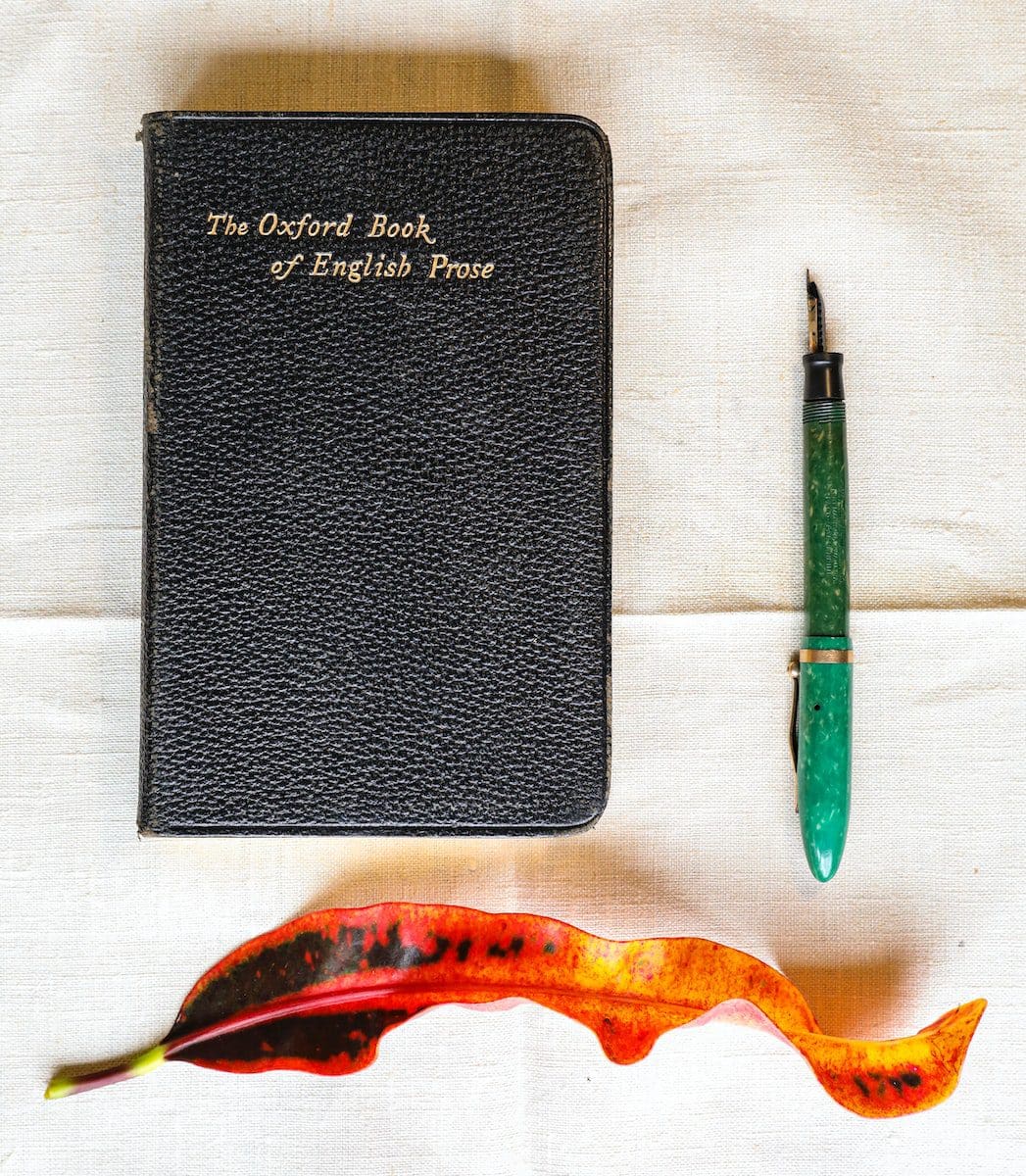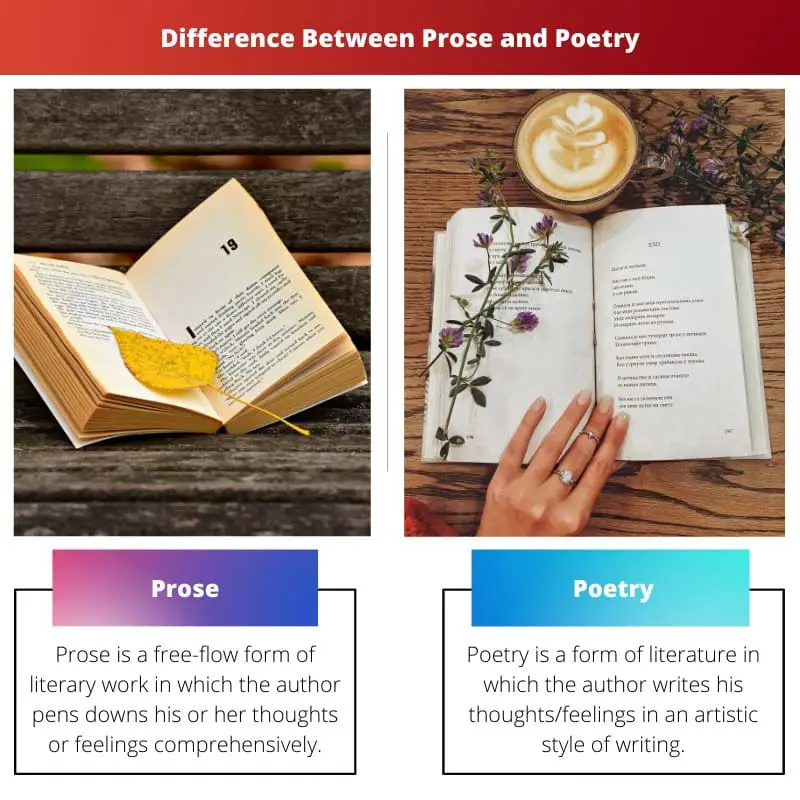Literature is considered an art form of writing that includes artistic and intellectual expressions.
It is the collection of literary works such as poems, prose, novel, play, or short story, which may be imaginative or based on actual incidents put into words with a touch of creativity.
Both prose and poetry are two familiar literary works with different connotations.
Key Takeaways
- Prose is a form of written or spoken language that follows a natural flow and structure. At the same time, poetry is a literary form that uses rhythm, meter, and figurative language to express ideas and emotions.
- The prose is the ordinary language used in writing and speaking, while poetry uses specialized language, symbolism, and creative formats to convey meaning.
- The prose is found in novels, essays, articles, and everyday communication, while poetry is a distinct literary genre that includes sonnets, haikus, and free verse.
Prose vs Poetry
The difference between prose and poetry is that of the writing style. Prose has no particular style or literary design; it can be found in blogs, newspaper articles, etc., whereas, on the other hand, poetry has a unique style and is written in stanzas.

The prose is a literary work written ordinarily, without any metrical composition, i.e., pattern or particular tone. At the same time, poetry is a form of literature that uses rhythmic patterns, unlike prose.
Comparison Table
| Parameters of Comparison | Prose | Poetry |
|---|---|---|
| Meaning | Prose is a free-flow literary work in which the author comprehensively notes their thoughts or feelings. | Poetry is a form of literature in which the author writes his thoughts/feelings creatively. |
| Writing Style | The prose is written without stanzas. | Whereas in the case of poetry, it is written in stanzas and paragraphs decoratively. |
| Motive | The main motive for penning down prose is to make readers aware. | Whereas poetry is written for pleasure or to delight the readers. |
| Language | The language used in prose is natural, and easy to understand. | On the other hand, in poetry, the language used is rhythmic. |
| Easy to understand | The prose is easy to understand and can be comprehended by reading it once. | While on the other hand, poetry is sometimes hard to understand, and it may take two-three times for a reader to comprehend. |
What is Prose?
Prose is a natural form of writing that exhibits an ordinary grammatical structure.
It has no rhythmic structure and is written in the language that people use as a part of their everyday speech, which is used to speak and write. The prose may or may not include dialogues. Moreover, it is sometimes supported by an image.
The following are the four kinds of prose:
- Fictional prose: Fictional prose includes novels and short stories. It is wholly or partly imaginative and is written in a narrative form that comprises people, events, places, etc.
- Non-fictional prose: A non-fictional prose is based on actual events or facts but may contain some fictional matter. Examples of non-fictional prose are the same as fictional prose, i.e. novels and short stories.
- Heroic prose: Heroic prose is a form of literature that is either written down or preserved through oral tradition but is meant to be passed on to generations or to be recited. Examples of heroic prose are legends and tales.
- Poetry prose: Poetry prose is written with a rhythmic style or poetic meter. Moreover, it is written in paragraphs instead of verses.
Newspaper articles, fairy tales, essays, biography, novels, textbook, stories, class lectures, and autobiographies are all examples of prose. Moreover, it is commonly used in our day-to-day conversations as well.

What is Poetry?
Poetry is a form of literature written artfully and is an ancient form that has gone through numerous drastic reinventions over time.
It evokes imaginative consciousness among the readers through its creative structure of words and rhyme that binds them with the poem.
It is the genre of literature that expresses ideas, feelings, and thoughts in stanzas and specific form lines.
A poem is written mainly to entertain the readers. Moreover, it is written in symbolic speech and is decorated with artistic expressions.
It is an imaginative awareness of experience expressed through meaning, sound, and rhythmic language choice, to evoke an emotional response. Moreover, poetry is known to have a metric and rhyme. However, it is not necessary.
The following are the three kinds of poetry:
- Narrative poetry: Narrative poetry is a type of poetry that tells a story written in verses. Moreover, it includes characters, roles, plots, etc. It is not written rhythmically.
- Dramatic poetry: Dramatic poetry is a poem genre with an emotional touch attached to them. It depicts a storyline or a specific situation and includes monologues and rhyme verses.
- Lyrical poetry: A lyric poem is a short musical story that expresses personal feelings, thoughts, and emotions. Moreover, it is written in the first person. The writer uses words to express emotions instead of a story.

Main Differences Between Prose and Poetry
- The prose is written in such a way that it does not pay attention to rhyme, whereas, in the case of poetry, it is written rhythmically.
- While writing prose, the writer or author has no word limit; on the other hand, a writer has a limited number of words to use.
- The prose is mainly realistic; however, the poem uses imaginative scenarios.
- In prose, ideas/thoughts are written down into lines which are combined into paragraphs, whereas, in the case of poetry, it is written in stanzas.
- In prose, the writer conveys an informative message for the betterment of society, and the readers, whereas, on the other hand, in the poem, the poet only writes to serve to delight its readers

- https://eric.ed.gov/?id=ED040786
- https://www.ingentaconnect.com/content/imp/jcs/2013/00000020/f0020009/art00008

The comprehensive explanation of what constitutes prose and poetry was very helpful in my understanding of literature. Thank you for sharing this valuable information.
While the article was informative, I found it to be a bit dry in its presentation. It could benefit from a more engaging writing style to captivate the reader’s attention.
I see your point, Lily. While the content is valuable, the delivery could be more engaging to enhance reader interest.
I found this article to be quite enlightening, especially in how it delves into the specific forms of prose and poetry and their characteristics.
Absolutely, the breakdown of different styles of prose and poetry was very informative. I enjoyed reading it.
I really appreciated the detailed explanation of the differences between prose and poetry, as well as the different types of each. It’s refreshing to see such a comprehensive analysis of literature.
I agree, the comparison table was particularly helpful in understanding the distinctions between prose and poetry.
The insight into the motives behind writing prose and poetry was particularly illuminating for me. Thank you for sharing.
The article’s exploration of the various types of poetry and prose was quite detailed and informative. It deepened my appreciation for the complexities of literary expression.
I share your sentiments, Dhunter. The content expanded my understanding of the multifaceted nature of prose and poetry.
The comprehensive nature of the article’s analysis provided valuable insights into the nuances of prose and poetry. It was a compelling read.
I found the informative tone of this article to be very educational and engaging. The content was well-researched and presented in a clear and concise manner.
Absolutely, the clarity of the explanations made the content very accessible and insightful.
This article offers a thorough exploration of prose and poetry, and the different literary forms within each category. It was a pleasure to read.
I’m not entirely convinced by the argument presented in this article. While it provides a detailed comparison, I think there’s more to the debate of prose vs. poetry than what’s outlined here.
I tend to agree with you, there’s always more nuance to these discussions than a simple comparison can capture.
I appreciated the article’s thorough examination of the features and unique characteristics of prose and poetry. It left me with a deeper understanding of both literary forms.
I concur, James. The depth of the analysis provided valuable insights into the distinctions between prose and poetry.
The nuanced analysis of prose and poetry was quite thought-provoking. It offered a comprehensive perspective on both forms of literature.
The article’s analysis of the key differences between prose and poetry was quite thorough. I learned a lot about the distinct features of each literary form.
Agreed, the depth of the analysis was impressive. It certainly expanded my understanding of prose and poetry.
The comparison table provided a clear and organized way to understand the disparities between prose and poetry. It was a helpful visual aid to complement the text.
I completely agree, Abigail. The table was a great addition to the article and enhanced the overall comprehension of the topic.